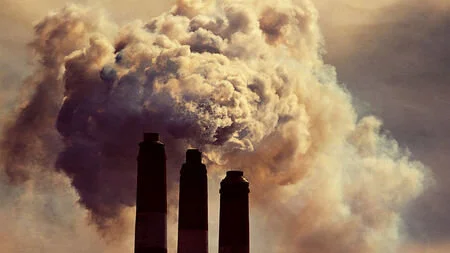President Biden took office in January of this year, one of his stated priorities was addressing climate change and the impacts of this are already becoming apparent. The day Biden took office, he canceled the permit for the Keystone XL pipeline. The pipeline’s purpose was to transport crude oil from Western Canada to Nebraska. It was proposed in 2008 and vetoed by the Obama administration in November 2015. This was believed to be the end of the pipeline; however, immediately after taking office in 2016, Donald Trump signed an executive order to continue the pipeline.
Deb Haaland Makes History as Newly Appointed Head of the Department of the Interior
Pictured above: Democratic Rep. Deb Haaland of New Mexico. Photo courtesy of WikiMedia Commons.
By Catelyn Fitzgerald ‘23
Staff Writer
In his first weeks in office, President Joe Biden announced his nominations for what will likely be one of the most diverse presidential Cabinets in American history. One unprecedented nominee was Democratic Rep. Deb Haaland of New Mexico to head the Department of the Interior. Haaland, a member of the Laguna Pueblo tribe, would make history as the first Indigenous person to be seated in the Cabinet. Her ancestry is particularly significant due to the responsibilities of the DOI, which manages the Bureau of Indian Affairs and the Bureau of Indian Education. According to the Interior Inspector General Mark Lee Greenblatt, these bureaus have previously seen poor leadership from the DOI, and the BIE in particular struggles with “fraud, waste, and mismanagement.” Haaland’s leadership in the department could elevate Indigenous people’s affairs and bring attention to the years of neglect faced by their communities.
The DOI is also responsible for the care of America’s public and protected lands, including the National Park Service, wildlife conservation initiatives and natural resource management. “I’ll be fierce for all of us, for our planet and all of our protected land, and I’m honored and ready to serve,” Haaland said in her nomination acceptance speech.
Haaland spent her childhood moving from one state to another as part of a military family before returning to New Mexico, where she raised her daughter and worked to put herself through law school.
“I know what it’s like to be on food stamps. I know what it’s like to piece together health care for me and my child. And so I feel like, in this day and time, in the middle of a pandemic, with economic struggles and environmental injustice, we need folks who are ‘close to the pain,’” Haaland said in a recent interview for the podcast “Living on Earth” from media company PRX. After working a variety of jobs, from starting her own salsa company to working as a tribal administrator, she became one of the first Indigenous women seated in Congress after being elected in 2018.
If confirmed as the secretary of the interior, Haaland would be removed from her seat in Congress, along with Democratic Rep. Marcia Fudge of Ohio and Democratic Rep. Cedric Richmond of Louisiana, to work for the Biden administration. Democratic leaders have expressed their concern about the possibility of losing their already slim majority in the House. While no official strategy has been announced, leaders such as House Majority Whip Jim Clyburn of South Carolina have recommended that Haaland’s confirmation hearing be delayed until special elections for the vacant House seats occur.
Haaland is currently facing resistance to her nomination from House Republicans, who are concerned about her stances on environmental issues. In contrast to former President Donald Trump’s efforts to open up as much public land to natural resource extraction as possible, Biden has made his refusal to issue any new oil and gas drilling permits clear. Instead, Biden is looking to expand the development of renewable energy sources. Haaland would oversee this moratorium on gas and oil leasing and has additionally shown support for the Green New Deal, which she co-sponsored during her first term in Congress. Many Congressional Republicans have also expressed their fears about what this might do to the economies of their states and their constituents’ job security. States like New Mexico, which Haaland represents, rely heavily on the fossil fuel industry.
“It will hurt a family who was able to send their children to a better school, take a nice vacation in the summertime. … It will destroy their livelihoods,” Republican Sen. Bill Cassidy of Louisiana commented in a recent interview.


